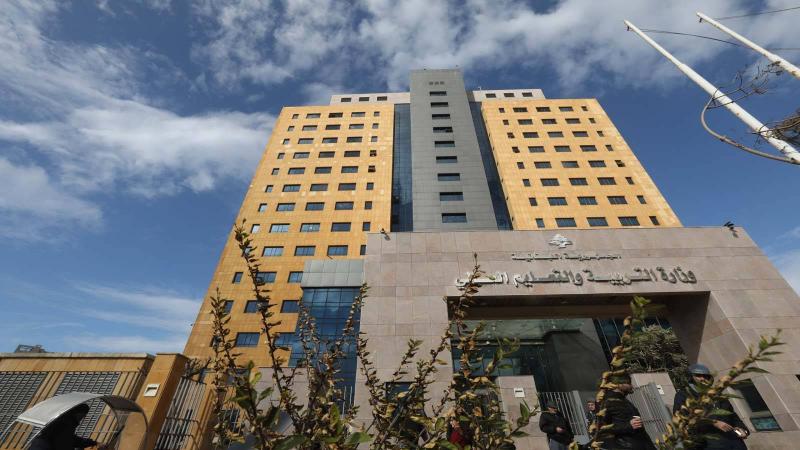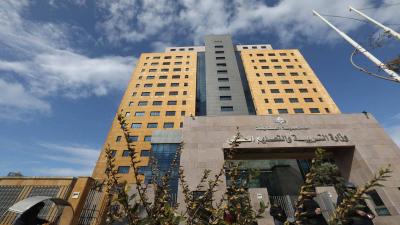In a world where the race for academic and professional excellence is accelerating, the recognition of counterfeit degrees deals a grave blow to the educational system and the prestige of the state. A university degree is not just a document to hang on the wall; it is an acknowledgment of the scientific and professional competence of its holder. When this degree is awarded without merit, it loses its value and credibility entirely, contributing to the spread of a culture of dishonesty and deceit in society, making it easy to manipulate the educational system, which ultimately leads to a decline in educational quality and academic achievement. This reality is manifesting in Iraq, where counterfeit degrees have become a malignant plague threatening the academic community and state leadership, jeopardizing the future of generations to come.
Despite the fact that document forgery dates back to the origins of education in Iraq, it has surged markedly since 2003. Surprisingly, the Iraqi parliament has tried to hide this reality, attempting to include individuals who have forged their university degrees within a general amnesty law. In a shocking move that stirred public resentment, the parliament approved a law in 2020 regarding degree equivalencies, allowing these forgery operations to go unpunished. Recently, it was revealed that officials and politicians had obtained counterfeit degrees among 27,000 fraudulent higher degrees (Master's and Doctorate) that Iraqi students acquired from three Lebanese universities. This scandal has raised widespread outrage within both Iraqi and Lebanese communities, leading to a suspension of studies for Iraqi students at these institutions.
The impact of counterfeit degrees on the prestige of the state represents a serious phenomenon that threatens state prestige and undermines citizens' trust in its institutions. When the state turns a blind eye to such practices, it reveals a blatant weakness in its legal and educational systems and widespread corruption in its administrative apparatus, posing a danger to its long-term stability and security. The state loses its legitimacy and weakens its ability to enforce law, resulting in rampant corruption and bribery, and a culture of impunity, which negatively affects social cohesion and hinders development. This casts a significant burden on the state's international reputation, threatening scientific cooperation and knowledge exchange, which increases the risk of self-isolation of universities and academics from the world. Consequently, counterfeit degrees become a ticking time bomb that threatens state stability and hinders its progress. Therefore, addressing this phenomenon decisively is essential by tightening penalties on degree forgers, enhancing the rule of law, and activating the role of educational institutions in promoting a culture of integrity and honesty.
The impact of counterfeit degrees on higher education is profound, as higher education serves as a fundamental pillar for progress and innovation in any society. It builds competencies and refines skills, contributing to economic prosperity and sustainable development. However, the recognition of counterfeit degrees constitutes a severe violation of this principle, encourages corruption, and hinders advancement. Acknowledgment of the legitimacy of these degrees inevitably undermines the quality of higher education. Rather than becoming beacons of knowledge and learning, educational institutions turn into fertile ground for dishonesty and deceit, harboring failures and corrupt individuals. Students who have exerted effort and perseverance to excel academically become victims of this phenomenon, feeling frustrated and losing trust in the educational system when they see that cheating is rewarded while hard work is not duly recognized. This toxic environment creates a negative atmosphere that stifles motivation for learning and innovation. Instead of focusing on acquiring knowledge and developing skills, students become primarily concerned with finding ways to circumvent laws and obtaining fake degrees with minimal effort. Therefore, counterfeit degrees become a lethal poison threatening the future of higher education and stifling its advancement.
Counterfeit degrees exacerbate backwardness and corruption, acting as a malignant affliction that erodes societal trust and hinders progress. When these degrees become a passport to success, ethical values and integrity are at risk of collapse. This is reflected in various aspects of life, starting from the academic field where educational institutions lose credibility, passing through a professional market that becomes distorted and fraudulent, to a social fabric that becomes weakened by the spread of a culture of cheating and deception. Counterfeit degrees encourage unethical behaviors; theft and fraud become mechanisms for obtaining positions and jobs. These degrees also weaken academic and professional integrity, rendering scientific standards counterfeit, which certainly leads to a deterioration in educational quality.
In conclusion, to preserve the prestige of the state and ensure a promising future for higher education, the government, the Ministries of Education and Higher Education, universities, and educational institutions must take a firm stand against counterfeit degrees. Monitoring and penalties need to be strengthened to deter these practices and protect the value of genuine degrees. A strong message must be sent that degree forgery is unacceptable and will not be tolerated. The government should dismiss anyone proven to have forged their degree from their position and prosecute them for fraud and deception against society, ensuring integrity in leadership positions and protecting society from deceit. Only by maintaining integrity and quality in education can nations thrive and move toward a better future.




